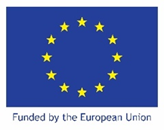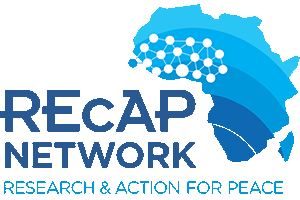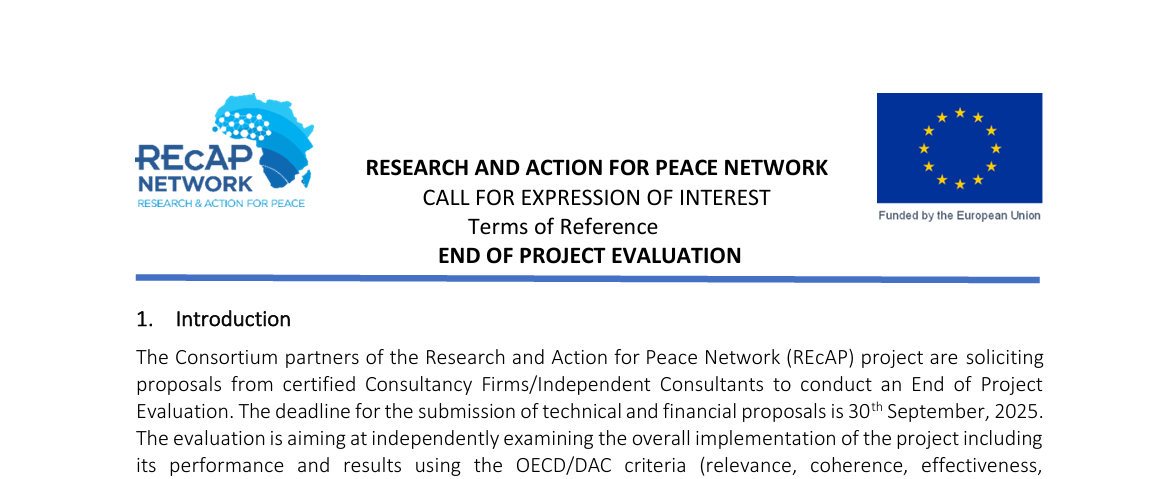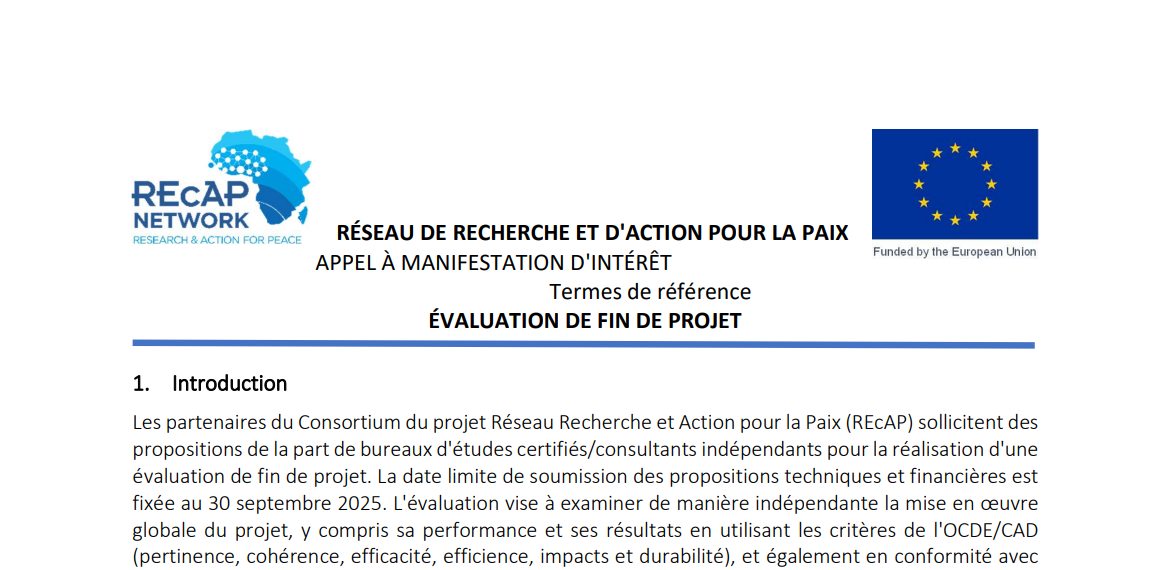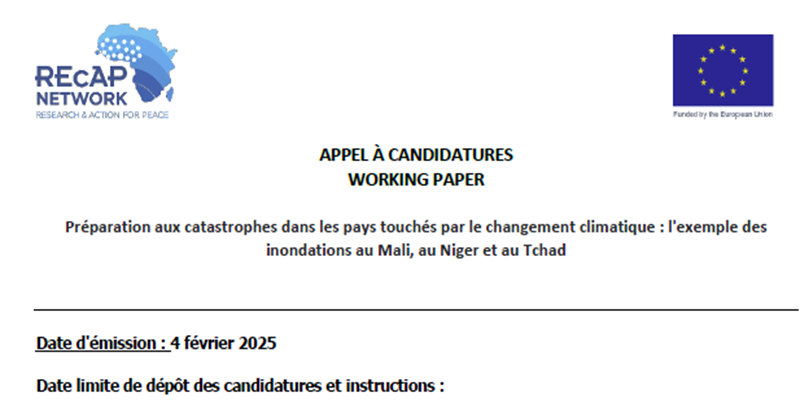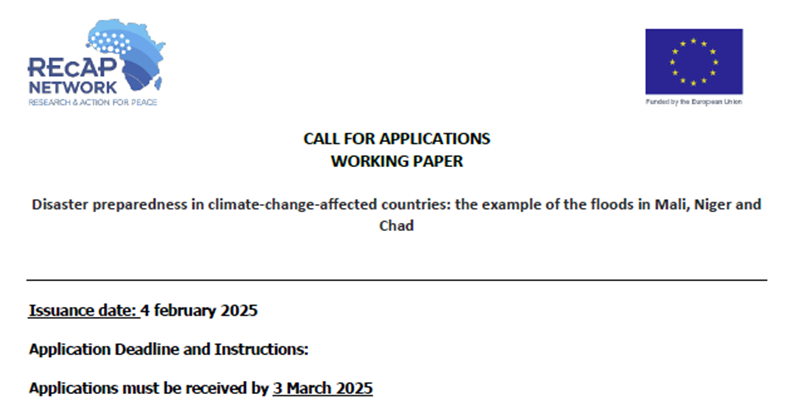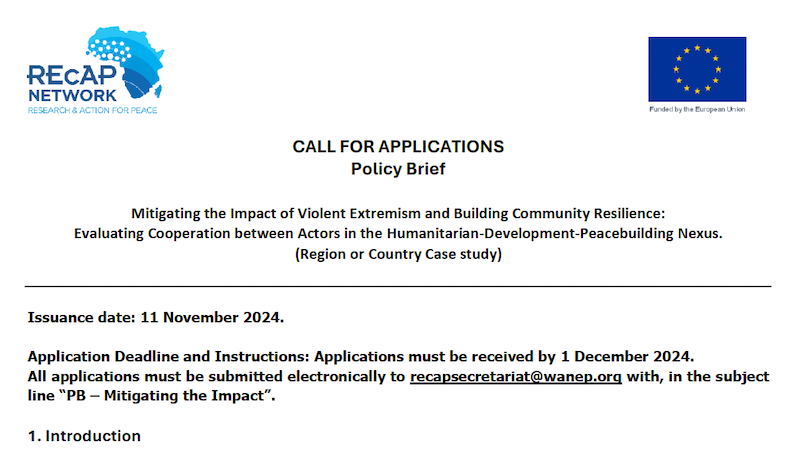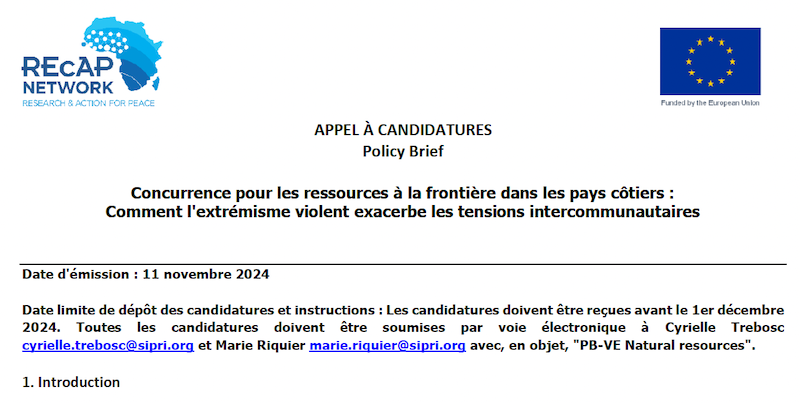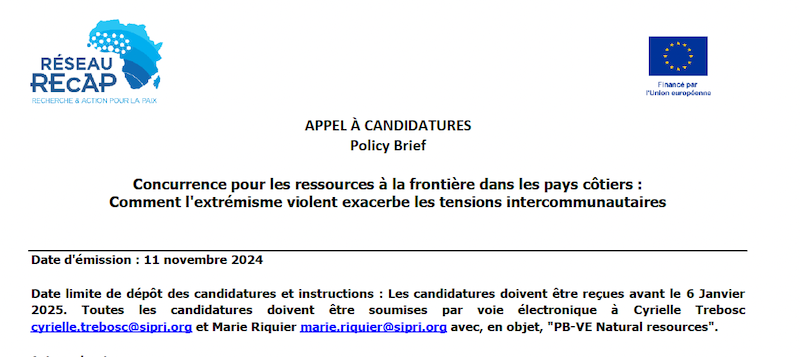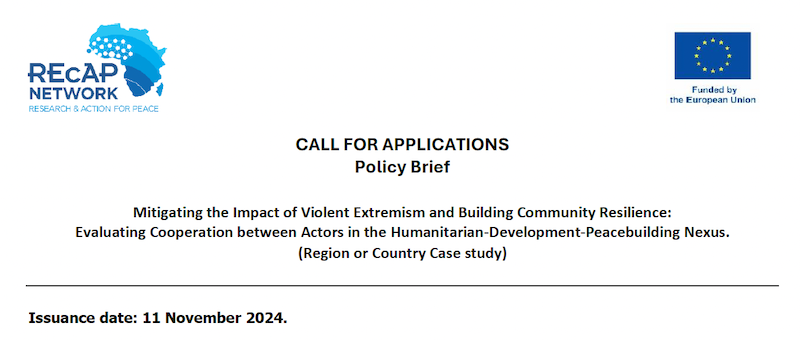CALL FOR EXPRESSION OF INTEREST — END OF PROJECT EVALUATION
The REcAP is a 48-months project funded by the European Union (EU) and implemented by the West
Africa Network for Peacebuilding (WANEP), the Danish Refugee Council (DRC) and the Stockholm
International Peace Research Institute (SIPRI) in 18 countries of West Africa and the Lake Chad Basin.
The primary objective of the project is to strengthen the role of civil society in effective peacebuilding,
crisis management and prevention of conflict and violent extremism in the 18 countries covered by the
project, and to also enable more informed decision making by policy makers. The idea behind the
network is to respond to capacity gaps and limitations to collaboration between peacebuilding experts,
policy makers and practitioners and to improve on the impacts, progress, and sustainability of
peacebuilding research, policy and practices.

